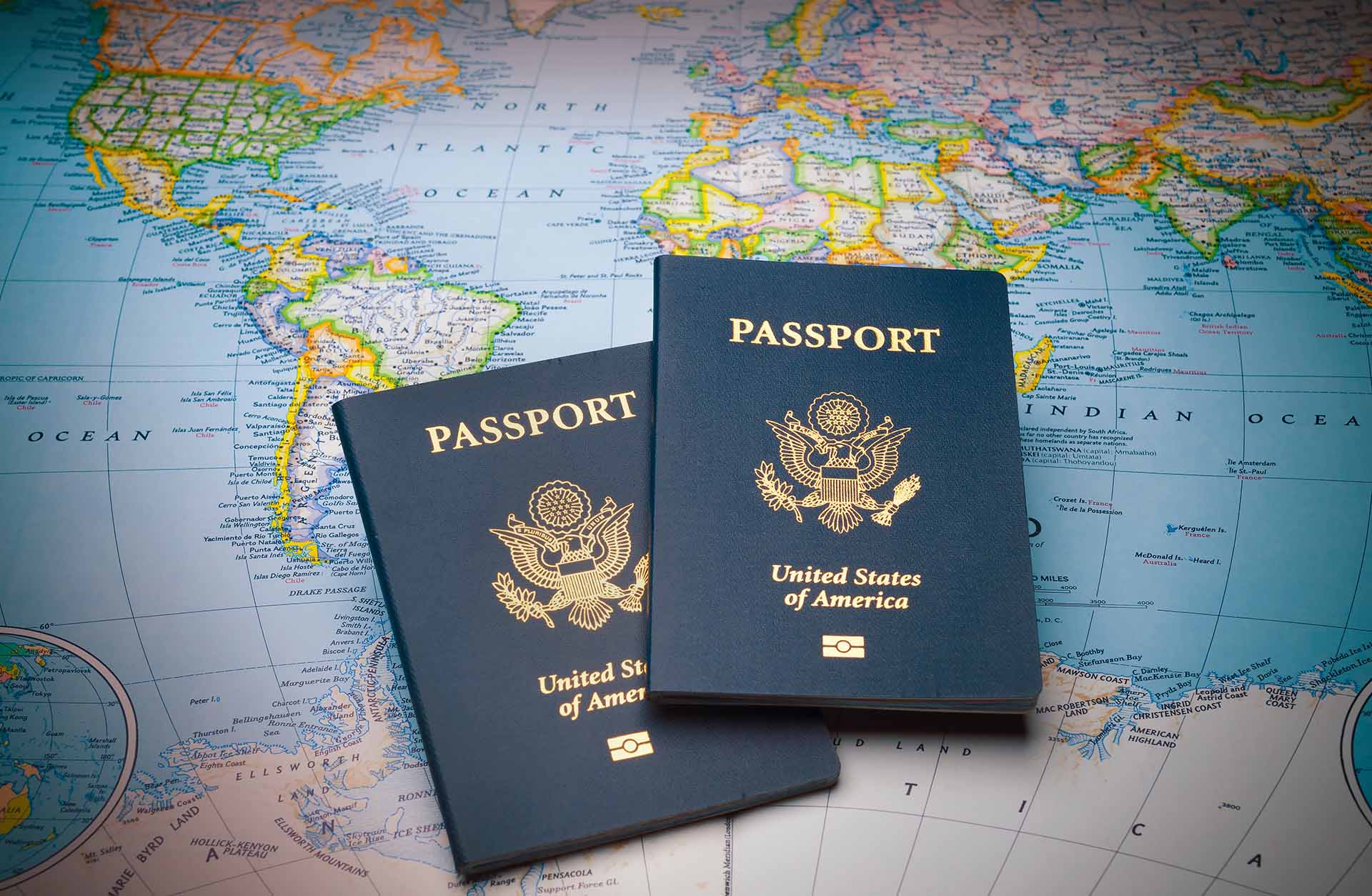Moving without a job across the world is a bold step filled with uncertainty and excitement. Whether it’s for new exciting adventures or a fresh start, this helpful guide will aid you in navigating the unique challenges and opportunities that come with moving to a new city without a job.

When facing jobless relocation to a foreign country, research the future relocation, understand the culture, and learn the local language. Explore the work market, and gather information about visas, permits, and legal requirements. Assess and plan your relocation budget and set aside emergency funds. Consider working remotely and employ different networking and work-hunting strategies before getting the dream position.
Research Your Destination Before Moving Overseas
Thorough research on how to move without a job can prevent unforeseen challenges and ensure that your relocation is stress-free and as smooth as possible. Whether it’s finding the right neighborhood, understanding local taxes, or knowing where to find essential services, proper planning and research are key to a successful moving internationally experience.
Explore Job Markets, Industries, and Opportunities Available
Understanding the demand for specific skills and occupations can guide education and training decisions. It also helps in identifying networking opportunities and potential employers. By aligning your skillset and career goals with the unique opportunities in the desired location, you can make informed decisions and set yourself up for success in your new environment. You can:
- Research local work markets – understand the demand for specific skills and occupations to guide career decisions,
- Investigate industry trends – stay informed about the growth sectors and potential career paths within your field,
- Utilize online employment platforms – leverage technology to find unique opportunities both locally and internationally,
- Network with professionals – engage with peers and potential employers to discover unadvertised positions and gain insights into the employment market.
Gather Essential Information About Visas, Work Permits, and Legal Requirements
When relocating across the world, it’s important to understand the types of visas available, application procedures, eligibility criteria, and processing timelines. Work permits may have specific conditions tied to the type of employment, salary, or region, and understanding these can prevent legal complications later.
Compliance with local immigration and labor laws is vital to avoid relocation stress. Collaborating with legal experts or consulting with the embassy can provide personalized guidance, helping to navigate complex legal landscapes and ensure that all documents for traveling abroad are correctly prepared and submitted, laying the groundwork for a successful and easy move.

Financial Planning and Budgeting Are a Must When Moving Without a Job
Proper financial planning provides a safety net, enabling a more focused work search and adjustment to a new life without the immediate pressure of financial instability. This process involves assessing savings, understanding the cost of living in the new location, and planning for essential expenses like housing, utilities, groceries, and healthcare.
Creating a detailed budget that accounts for both fixed and unexpected costs can provide a financial roadmap, helping to avoid anxiety about moving out and even aid you in saving some money in the long run. It’s also wise to consider potential sources of income, such as temporary or part-time work, while searching for long-term employment.
Create a Realistic Budget for the Initial Months Without Income
Having a well-structured budget and relocation plan provides a clear financial picture, allowing for better decision-making and preparation for contingencies. It also offers peace of mind, knowing that relocation essentials are covered while pursuing new career opportunities.
This budget should encompass all predictable expenses, such as rent or mortgage payments, utilities, groceries, insurance, and transportation, as well as unexpected costs that may arise. By factoring in your future cost of living and identifying areas where expenses can be minimized, you can establish a financial plan that ensures stability while looking for employment.
Save and Set Aside Funds for Accommodation, Living Expenses, and Emergencies
An emergency fund, in particular, can be a lifeline in the event of unforeseen circumstances, such as medical emergencies, unexpected repairs, or delays in finding employment. By diligently planning and segregating funds for these vital categories, you can verify that you have the financial resources needed to navigate the initial period after relocating to a new city.

Consider Remote Job Opportunities
Exploring remote work options and freelance opportunities in your field can open doors with international employers without the need to be physically present in the same location. Utilizing online platforms and global freelancing websites can facilitate connections with potential employers looking for your specific skills and expertise.
Showcasing your abilities through an up-to-date portfolio on any of the platforms below can help you stand out and attract international employers. Here’s a list of platforms where you might consider looking for remote employment openings:
Embracing the Language Will Help You With the Job Hunt
The effort to learn the language abroad not only boosts employability but also enriches personal growth and the overall experience of living and working in a new country. Enrolling in language courses or engaging in language exchange programs can enhance communication skills, making interactions with potential employers and colleagues more effective. Furthermore, learning the language, even at a basic level, facilitates daily tasks like shopping and navigating public transportation.
Follow the video below for tricks and tips on how to master a new language if you are moving to a new city alone without a job.
Understand the Culture and Customs of the New Country
Acknowledging and embracing the local culture not only enriches personal experiences but also helps in adjusting to the new country and environment, turning potential challenges into opportunities for growth and connection. Familiarity with local etiquette and traditions can foster positive relationships with neighbors and colleagues and reduce cultural shock and the risk of unintentional misunderstandings.
Immersing yourself in the local culture by attending community events or joining local groups allows you to break the language barrier and adapt more quickly, understanding the nuances that might influence workplace dynamics. Appreciating cultural differences and maintaining an open mind is vital in forming positive relationships and successfully integrating into a new work environment.
Employ Different Networking and Job Search Strategies
Attending work fairs, networking events, and industry conferences can provide invaluable face-to-face interactions with potential employers and industry insiders. Tailoring your resume and cover letter to match local market preferences demonstrates awareness and adaptability, qualities often highly regarded by hiring managers. Furthermore, leveraging social media allows you to connect with employers and other professionals in your field, potentially leading to opportunities that may not be advertised publicly but are perfect employee relocation opportunities.
Seek Professional Employment Guidance
Consulting career coaches or work placement agencies specializing in expat transitions can provide personalized insights and support tailored to your specific situation. Seeking advice from local career centers or employment agencies can connect you with resources and opportunities within the community. Additionally, getting feedback on your resume and interview skills from professionals familiar with the local market can help you refine your approach and stand out among other candidates.

Hire Our Overseas Moving Company to Do the Heavy Lifting While You Are Looking For Work
Hiring an international moving company to handle the heavy lifting allows you to focus on finding jobs in your new city. Entrusting the logistics of vehicle shipping overseas to I Love International Moving and selecting our packing services, storage, and custom crating solutions will give you peace of mind and enough time and energy to build your new career. Contact us today for a smooth and worry-free relocation across the world. Allow our professional team to handle your move so that you can focus on taking care of yourself and planning your future.
FAQ
Save sufficient funds to cover living expenses for several months. Research the employment market, local cost of living, and housing options in advance. Expand your network, utilize local job search resources, and consider temporary gigs or remote work while you settle in and seek permanent employment.
Someone may consider moving to another country without employment for various reasons, such as pursuing a new lifestyle, joining a family, seeking better career prospects, following educational opportunities, or experiencing a new culture. This decision often involves careful planning and consideration of potential relocation benefits and risks.
To research employment opportunities in a foreign country, utilize online platforms specific to that region, and network with professionals in your field. Explore company websites that hire internationally and consider reaching out to local employment agencies or expat communities. These methods provide insights into the local market and help identify suitable opportunities before moving.
Financial planning for a move without employment should include creating a realistic budget that covers living expenses for several months, setting aside an emergency fund, exploring potential income sources like remote work or freelancing, and understanding the cost of living in the new location. Careful planning ensures financial stability during your work-hunting.
Building a support network as a foreigner can be achieved by joining local expat communities, attending social events or meetups, engaging with neighbors and colleagues, volunteering, and participating in hobbies or activities that interest you. These connections foster a sense of belonging and assist in adapting to your environment.
Yes, remote work opportunities can be explored before moving through various platforms. Many companies offer remote positions that allow you to work from anywhere, making it possible to secure employment in your field before relocating.
Volunteering or internships can help you find employment by providing local experience, expanding your professional network, improving language skills, and demonstrating adaptability to the local culture. These opportunities can also enhance your resume, showcasing relevant skills and a commitment to your field, making you more attractive to potential employers.
To embrace the language and culture of your country, consider enrolling in language courses, engaging with locals, attending cultural events, consuming local media, and practicing daily communication. Being open to new customs and actively participating in community life can accelerate language learning and cultural adaptation, making the transition smoother and more enjoyable.
Legal requirements and work permits vary by country and employment type. Typically, a valid work visa or permit is required, obtained through sponsorship by an employer or meeting specific criteria. Consulting with a local embassy, immigration office, or legal expert in the destination country is essential to understand and comply with the specific regulations and processes.
Staying positive and persistent during your search when moving abroad can be achieved by setting realistic and achievable goals, maintaining a daily routine, seeking support from local expat communities or professionals, celebrating small victories, and focusing on self-care. Embracing the journey and learning from each experience, rather than dwelling on setbacks, can foster a positive mindset.
Yes, seeking professional guidance or career coaching for an international employment search can be beneficial. Experts can provide insights into the local market, assist with customizing your application materials, and offer strategies to navigate cultural differences.
Celebrating personal growth and achievements during this journey can include acknowledging and reflecting on milestones, sharing successes with friends and family, treating yourself to something special, or even keeping a journal to document progress. Recognizing and honoring the effort, resilience, and growth that comes with this experience can provide motivation and fulfillment.
Common challenges faced by expats moving without employment include securing legal work status, navigating unfamiliar markets, adjusting to cultural differences, building a professional network, managing financial stability during this crucial period, and potentially facing language barriers. Understanding and preparing for these challenges can support a smoother transition to your future location.
Yes, certain industries tend to be more welcoming to international work seekers, such as technology, healthcare, education, tourism, and finance. These sectors often have a global outlook and may value the diverse perspectives and skills that international candidates bring. Researching companies and roles within these industries in a specific country can lead to promising opportunities.
Balancing exploration and work-hunting can be achieved by setting a schedule that includes dedicated time for both activities. Combining networking with local exploration, attending cultural or professional events, and setting aside specific days or hours for sightseeing while maintaining a regular search routine can help you enjoy the wonders of your country while pursuing employment.
Language proficiency requirements can vary by industry and country. In industries where communication with local clients or colleagues is essential, such as healthcare, customer service, or education, fluency in the local language may be required. Researching the specific language needs of your target industry in the destination country will help you prepare and meet any necessary criteria.
Adapting to a new work culture abroad involves observing and adapting local customs, being open to different communication styles, asking your employers questions to clarify expectations, respecting hierarchical structures, and maintaining a patient and flexible attitude. Engaging with local colleagues and seeking feedback can also aid in understanding and integrating into the unique dynamics of the workplace.
Yes, an expat can start a business without an employment offer, provided they comply with the host country’s legal and regulatory requirements. Researching and understanding local business laws, securing proper visas or permits, and having a solid business plan that aligns with the local market are essential steps to successfully launching your business.
Some countries offer government programs or support for those looking for employment, such as work placement services, language training, workshops, and networking events. These services may be provided through governmental employment agencies or expat integration programs. It’s advisable to research the specific services available in your destination country to take advantage of any support that may facilitate your work-hunting.












